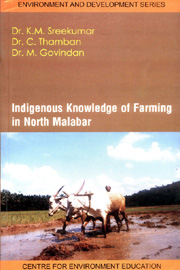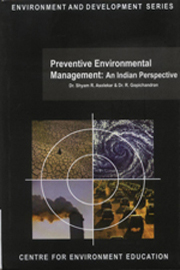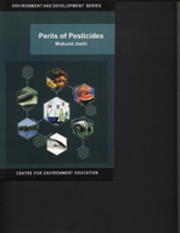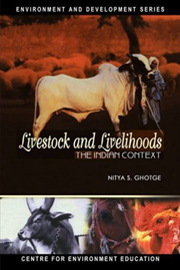8 results in Environment and Development Series

Indigenous Knowledge of Farming in North Malabar
-
- Published by:
- Foundation Books
- Published online:
- 05 November 2011
- Print publication:
- 18 August 2006

Challenging the Indian Medical Heritage
-
- Published by:
- Foundation Books
- Published online:
- 05 November 2011
- Print publication:
- 21 February 2004

Preventative Environmental Management
- An Indian Perspective
-
- Published by:
- Foundation Books
- Published online:
- 05 November 2011
- Print publication:
- 12 December 2005

Perils of Pesticides
-
- Published by:
- Foundation Books
- Published online:
- 26 October 2011
- Print publication:
- 13 January 2005

Dew Harvest
- To Supplement Drinking Water Sources in Arid Coastal Belt of Kutch
-
- Published by:
- Foundation Books
- Published online:
- 26 October 2011
- Print publication:
- 24 March 2006

Livestock and Livelihoods
- The Indian Context
-
- Published by:
- Foundation Books
- Published online:
- 26 October 2011
- Print publication:
- 23 January 2004

Organic Farming
-
- Published by:
- Foundation Books
- Published online:
- 26 October 2011
- Print publication:
- 18 August 2006

Climate Change
- An Indian Perspective
-
- Published by:
- Foundation Books
- Published online:
- 26 October 2011
- Print publication:
- 31 August 2007

